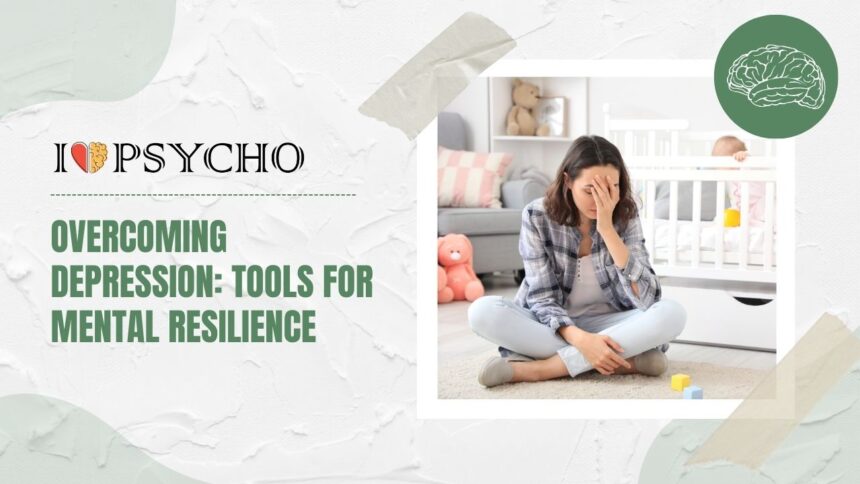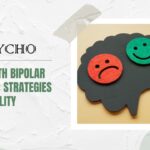Are you feeling like the weight of the world is on your shoulders? Do everyday tasks seem overwhelming and joy feels out of reach? You’re not alone. Depression can cast a shadow over even the brightest days, but there are tools and strategies to help you overcome it. In this blog post, we’ll explore how to build mental resilience and find support in challenging times. Let’s dive in!
Understanding Depression: Definition and Symptoms
Depression is more than just feeling sad or down occasionally. It’s a complex mental health condition that can impact every aspect of your life. Symptoms of depression can vary from person to person, but common signs include persistent feelings of sadness, hopelessness, and worthlessness.
Physical symptoms like changes in appetite, sleep disturbances, and fatigue may also accompany the emotional aspects of depression. It’s important to recognize that depression is not a sign of weakness or failure; it is a medical condition that requires attention and care.
If you find yourself experiencing these symptoms for an extended period, it may be helpful to seek support from a mental health professional. Remember, reaching out for help is a sign of strength and self-awareness.
Causes of Depression
Depression can be caused by a combination of genetic, biological, environmental, and psychological factors. Genetics play a role in predisposing individuals to depression; having a family history of the disorder increases one’s risk.
Biological factors such as chemical imbalances in the brain can also contribute to the development of depression. Imbalances in neurotransmitters like serotonin and dopamine may impact mood regulation.
Environmental factors like trauma, loss, chronic stress, or major life changes can trigger or exacerbate depressive symptoms. These external stressors can disrupt one’s sense of stability and lead to feelings of hopelessness.
Psychological factors including low self-esteem, negative thought patterns, or unresolved emotional issues can contribute to the onset of depression. Additionally, certain personality traits like perfectionism or pessimism may increase vulnerability.
Understanding these various causes is crucial in addressing and managing depression effectively. By identifying underlying triggers and developing coping strategies tailored to individual needs, it is possible to work towards healing and recovery from this challenging mental health condition.
How to Recognize if You Are Depressed
Have you been feeling consistently sad or hopeless lately? Do simple tasks feel overwhelming, and do you find yourself withdrawing from activities you once enjoyed? These could be signs of depression creeping in. It’s essential to pay attention to changes in your mood, sleep patterns, appetite, and energy levels.
If you’re experiencing persistent feelings of emptiness, worthlessness, or guilt without a specific reason, it might indicate underlying depression. Irritability, restlessness, and difficulty concentrating can also be red flags. Physical symptoms like unexplained aches or pains may accompany the emotional distress.
Social withdrawal and isolating yourself from friends and family are common behaviors seen in individuals struggling with depression. If you notice a significant decline in your overall well-being and these symptoms persist for an extended period, it’s crucial to seek professional help for proper assessment and support.
Seeking Professional Help: Therapy and Medication
When facing depression, seeking professional help can be a crucial step towards healing. Therapy offers a safe space to explore your thoughts and emotions with a trained therapist who can provide guidance and support. Through therapy, you can uncover underlying issues contributing to your depression and learn coping strategies.
Medication may also be prescribed by a healthcare provider to help manage symptoms of depression. Antidepressants can restore chemical imbalances in the brain that contribute to mood disorders. It’s important to work closely with your doctor to find the right medication and dosage that works for you.
Combining therapy and medication can often be an effective approach in treating depression. Remember, there is no shame in seeking help when you need it most. Professional support can make a significant difference in your journey towards mental well-being.
Self-Help Strategies for Overcoming Depression
Navigating through the challenges of depression can be a daunting journey, but there are self-help strategies that can empower you along the way.
Start by incorporating mindfulness practices into your daily routine. Engaging in activities like meditation or deep breathing exercises can help calm your mind and reduce feelings of anxiety and sadness.
Physical exercise is another powerful tool for overcoming depression. Even a short walk outside or a quick workout session can boost your mood by releasing endorphins, also known as “feel-good” hormones.
Nourishing your body with healthy foods plays a crucial role in supporting your mental health. Incorporate nutrient-rich foods like fruits, vegetables, whole grains, and lean proteins to fuel both your body and mind.
Connecting with others who understand what you’re going through can provide valuable support. Consider joining a support group or confiding in trusted friends and family members about how you’re feeling.
Remember to practice self-compassion throughout this process. Be kind to yourself on tough days and celebrate even the smallest victories on good days.
Building Mental Resilience: Tips and Techniques
Building mental resilience is crucial in overcoming depression. One key tip is to practice self-care regularly – prioritize activities that bring you joy and relaxation. Engage in hobbies, exercise, or simply take a walk outdoors to clear your mind.
Another technique is to challenge negative thoughts with positive affirmations. Replace self-criticism with self-compassion and remind yourself of your strengths and accomplishments. This shift in mindset can make a significant difference in how you perceive challenges.
Additionally, practicing mindfulness can help you stay grounded in the present moment instead of getting caught up in worries about the past or future. Mindfulness techniques such as deep breathing exercises or meditation can improve your emotional well-being.
Maintaining social connections is essential for building resilience. Surround yourself with supportive friends and family members who understand what you’re going through and offer encouragement during tough times. Remember, building mental resilience takes time and effort but it’s worth it for your overall well-being.
Support Systems and Resources for Coping with Depression
Building a support system is crucial for coping with depression. Surrounding yourself with understanding and compassionate individuals can provide emotional comfort and stability. Friends, family, or support groups can offer reassurance and a listening ear during tough times.
Seek out resources such as hotlines, online forums, or community centers that cater to mental health support. These platforms can connect you with others who may be going through similar experiences and provide valuable insights into coping strategies.
Therapists or counselors can also play a significant role in your journey towards healing. Professional guidance can help you navigate your emotions and develop effective coping mechanisms tailored to your unique needs.
Remember, reaching out for help is not a sign of weakness but rather an act of courage. Embrace the support available to you as you work towards managing your depression effectively.
Conclusion
Overcoming depression is a journey that requires both self-reflection and seeking support from professionals or loved ones. By understanding the symptoms, causes, and recognizing when you need help, you can take the first step towards healing. Utilizing a combination of therapy, medication (if necessary), self-help strategies, and building mental resilience can empower you to navigate through challenging times with strength and courage. Remember that it’s okay not to be okay sometimes, but reaching out for help is a sign of bravery and self-care. You are not alone in this battle against depression; there are resources and support systems available to guide you towards light at the end of the tunnel. Stay resilient, stay strong – brighter days are ahead!









